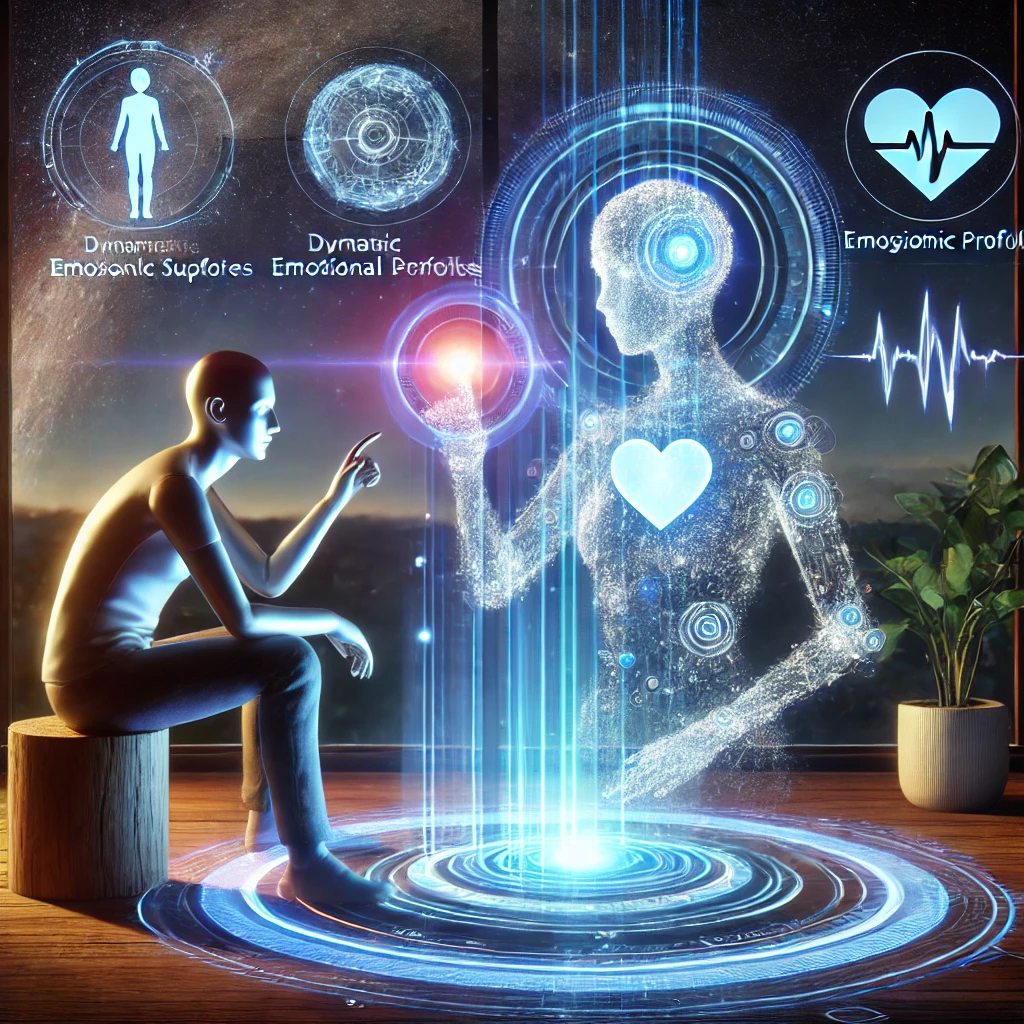AI and empathy: Transforming mental health care with novel approach
The study highlights RACLETTE, a conversational AI system fine-tuned to recognize and respond empathetically to users' emotional states. This system goes beyond traditional chatbots by focusing on cognitive empathy - an understanding of a user’s emotional state and the ability to respond appropriately without mimicking human emotions.

The integration of Artificial Intelligence (AI) into mental health care is a promising frontier, offering scalable and innovative solutions to address the growing demand for psychological support. The study "The Emotional Spectrum of LLMs: Leveraging Empathy and Emotion-Based Markers for Mental Health Support" by Alessandro De Grandi, Federico Ravenda, Andrea Raballo, and Fabio Crestani, available on arXiv, delves into this potential. It introduces a groundbreaking conversational AI system designed to enhance mental health support by combining empathetic responses with emotion-based diagnostic tools.
A breakthrough in conversational AI
The study highlights RACLETTE, a conversational AI system fine-tuned to recognize and respond empathetically to users' emotional states. This system goes beyond traditional chatbots by focusing on cognitive empathy - an understanding of a user’s emotional state and the ability to respond appropriately without mimicking human emotions. RACLETTE achieves this through emotion embeddings, a high-dimensional representation of emotional states derived from user conversations. Unlike conventional models, which struggle to differentiate between nuanced emotions, RACLETTE excels in identifying and responding to complex emotional cues such as the subtle distinctions between sadness, frustration, or hopelessness.
The system employs a unique 3-turn conversational framework, which improves its predictive capabilities by analyzing not just isolated user inputs but the broader context of the interaction. This structure enables RACLETTE to generate emotional profiles for users over time, offering insights into their mental states that evolve dynamically. These profiles serve as a valuable tool for identifying psychological markers of conditions such as depression, anxiety, schizophrenia, and bipolar disorder.
Emotion profiles as diagnostic tools
A key innovation of RACLETTE lies in its ability to create emotional profiles that align with known psychological markers of mental health conditions. By analyzing conversations, the system generates explainable emotion embeddings that can be compared against pre-computed patterns associated with disorders like depression, schizophrenia, and bipolar disorder.
This capability positions RACLETTE as not just an empathetic conversational agent but also a supplementary diagnostic tool for mental health practitioners. The system’s ability to differentiate between disorders with overlapping symptoms offers a level of precision that is often challenging for human evaluators, particularly in the early stages of a condition.
Balancing empathy, privacy, and emotional accuracy
RACLETTE’s design prioritizes privacy and scalability, addressing one of the most critical concerns in mental health applications. By relying on publicly available datasets such as Empathetic Dialogues and Reddit Mental Health, rather than sensitive clinical data, the system ensures that user interactions remain anonymous while enabling widespread deployment. This commitment to confidentiality is paired with RACLETTE’s focus on cognitive empathy, which avoids the pitfalls of affective empathy, such as emotional manipulation or fostering unrealistic user expectations. This careful balance allows RACLETTE to create a safe and trustworthy environment for users seeking emotional support.
Adding to this trustworthiness is RACLETTE’s achievement in delivering emotionally accurate responses, a cornerstone of its effectiveness. With an emotional accuracy rate of 59%, it outperforms other state-of-the-art models like CAiRE, ensuring that interactions feel contextually relevant and supportive. Emotional accuracy not only enhances user engagement but also fosters trust, a critical component in mental health applications. However, achieving this precision requires sophisticated algorithms capable of deciphering nuanced human emotions, a challenge that highlights the importance of integrating domain-specific training with advanced language models. By merging privacy safeguards with cutting-edge emotional accuracy, RACLETTE exemplifies how AI can address the complexities of mental health support.
Practical applications and ethical implications
The potential applications of RACLETTE extend beyond mental health care, with its ability to understand and respond to emotional states making it a versatile tool for various fields. In education, RACLETTE could provide emotional support to students navigating academic stress, while in customer service, it could enhance user satisfaction by addressing emotional concerns during interactions. Its empathetic capabilities also make it suitable for roles in social companionship, offering meaningful interactions to combat loneliness.
Despite its potential, the study underscores the importance of ethical considerations when deploying such systems. Over-reliance on AI for emotional support could create dependencies that undermine the therapeutic value of human relationships. Additionally, ensuring the reliability and fairness of emotion-based diagnostics is essential to prevent biases or misdiagnoses that could harm users. The researchers advocate for integrating RACLETTE into traditional therapeutic frameworks, emphasizing its role as a complementary tool rather than a replacement for human care.
To sum up, the success of empathetic AI depends on balancing technological innovation with ethical responsibility and preserving the irreplaceable value of human connection. This study not only highlights the transformative potential of AI in mental health care but also sets a benchmark for the thoughtful and responsible development of AI technologies. RACLETTE paves the way for a future where AI supports emotional well-being while maintaining the trust and safety of its users.
- FIRST PUBLISHED IN:
- Devdiscourse
ALSO READ
Govt adds 31 specialist mental health beds to boost care in Lower Hutt
New Data Shows Strong Gains in Mental Health and Addiction Access Nationwide
UN Adopts Historic Declaration Integrating Action on NCDs and Mental Health by 2030
Fortis launches facility for mental healthcare; plans 10 centres over 3 yrs
AI chatbots may ease fear of judgment in mental health support










